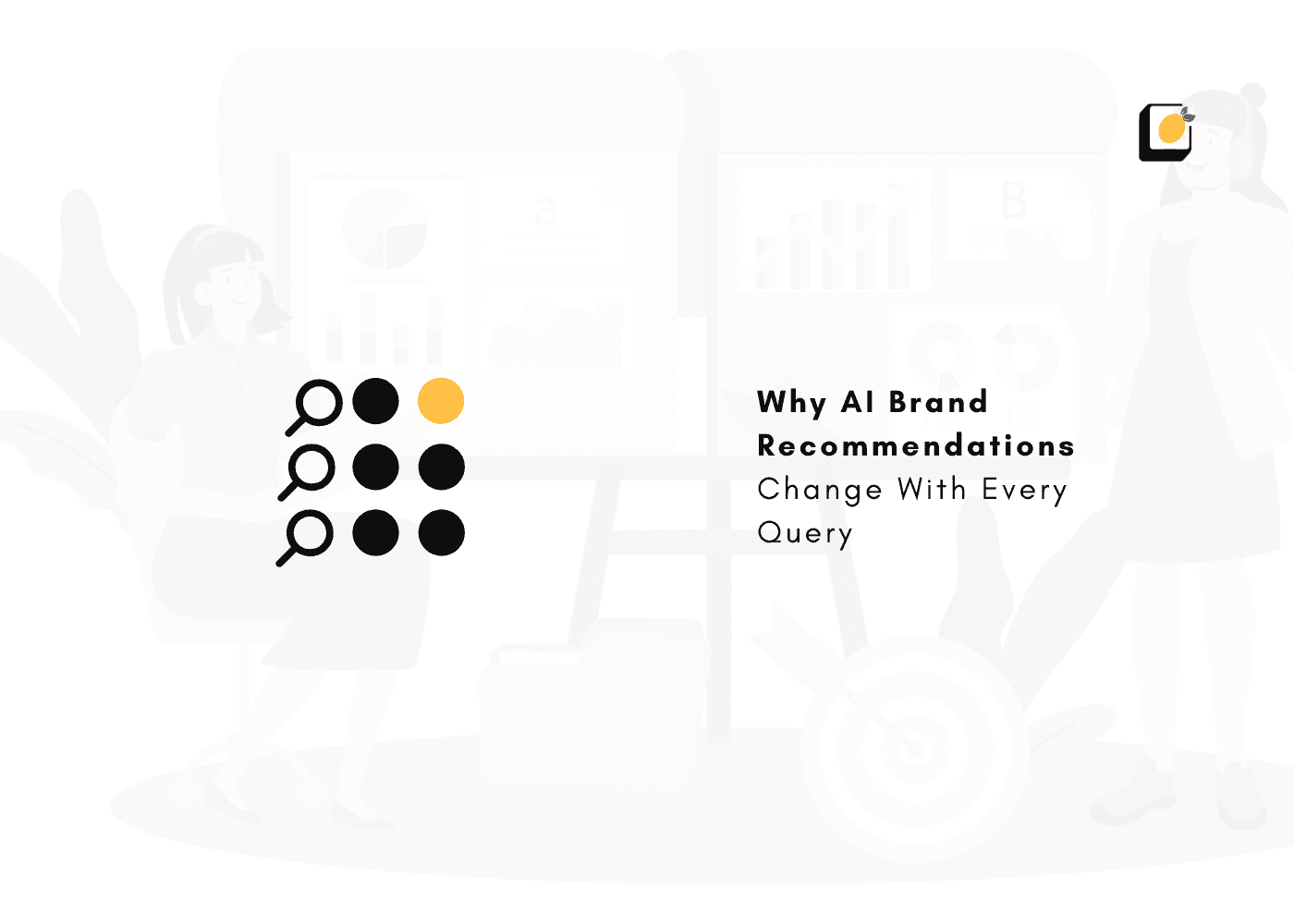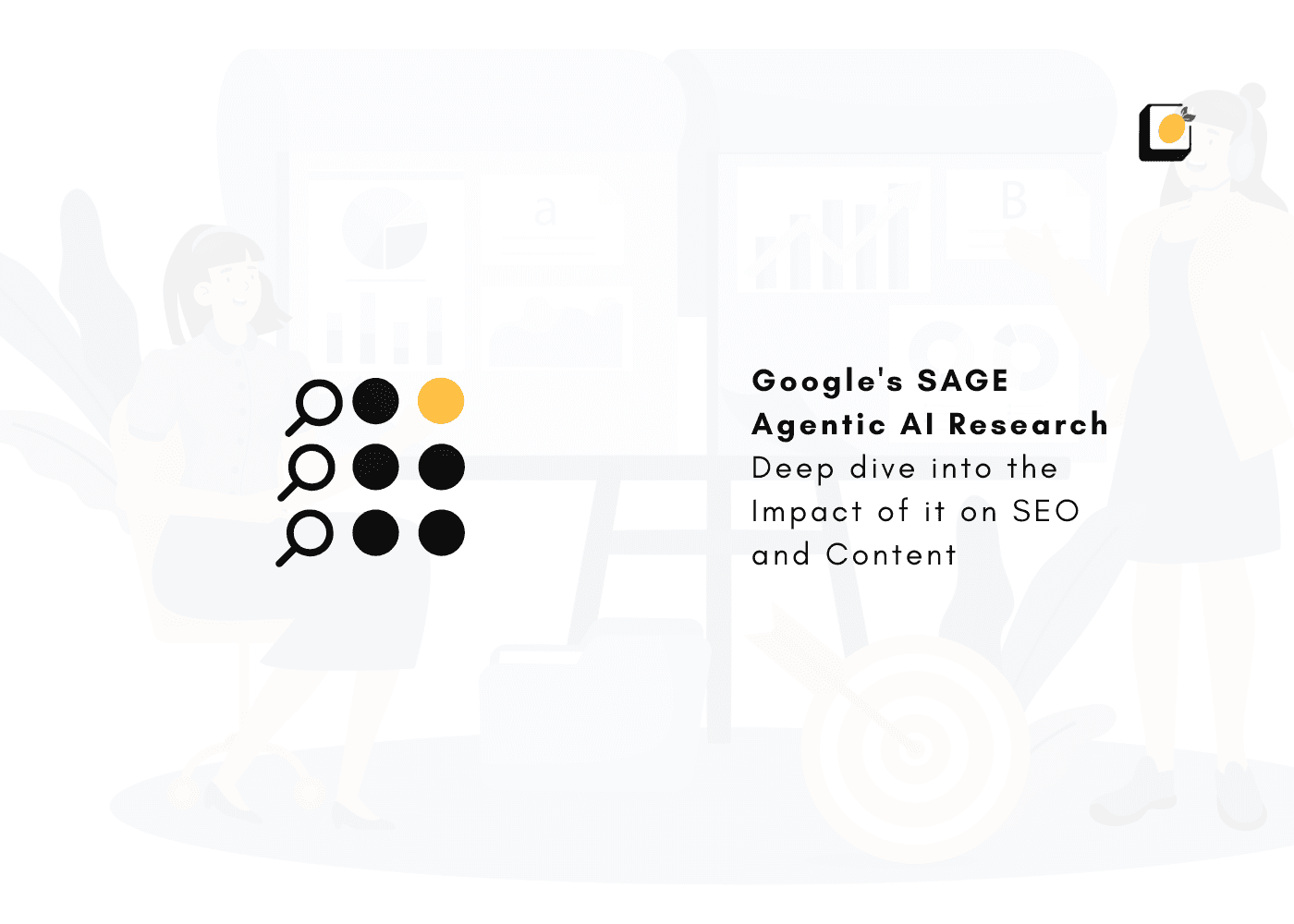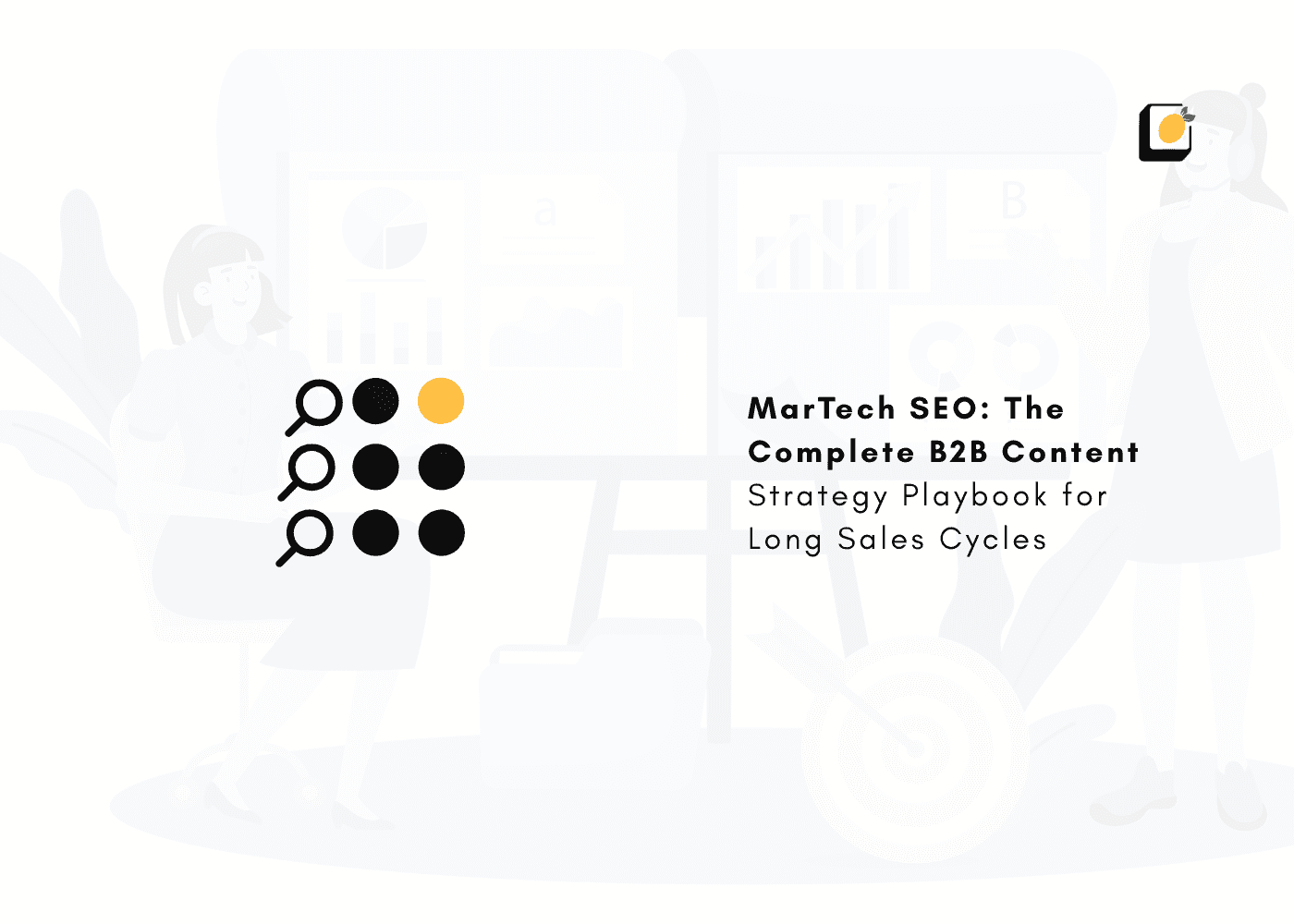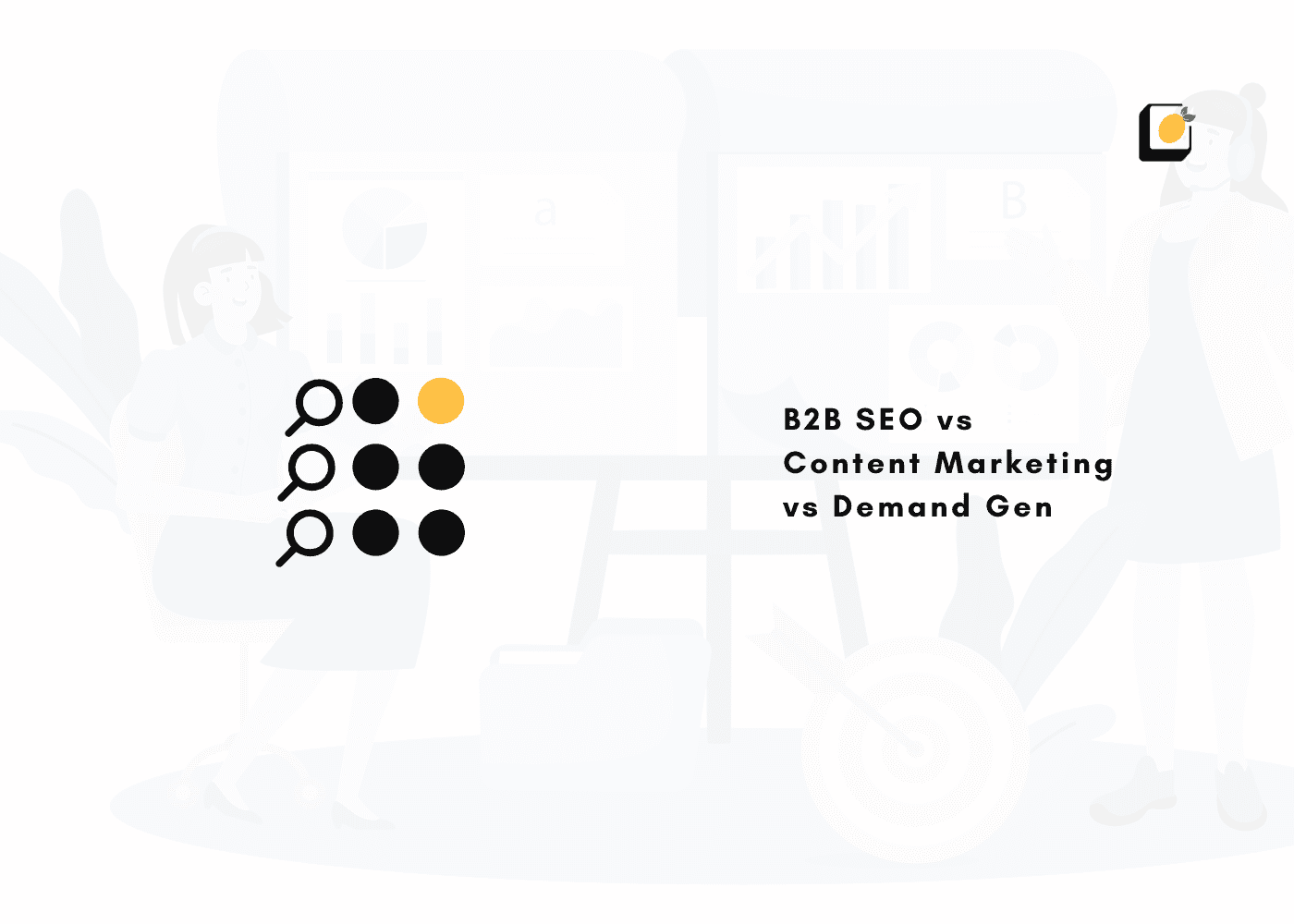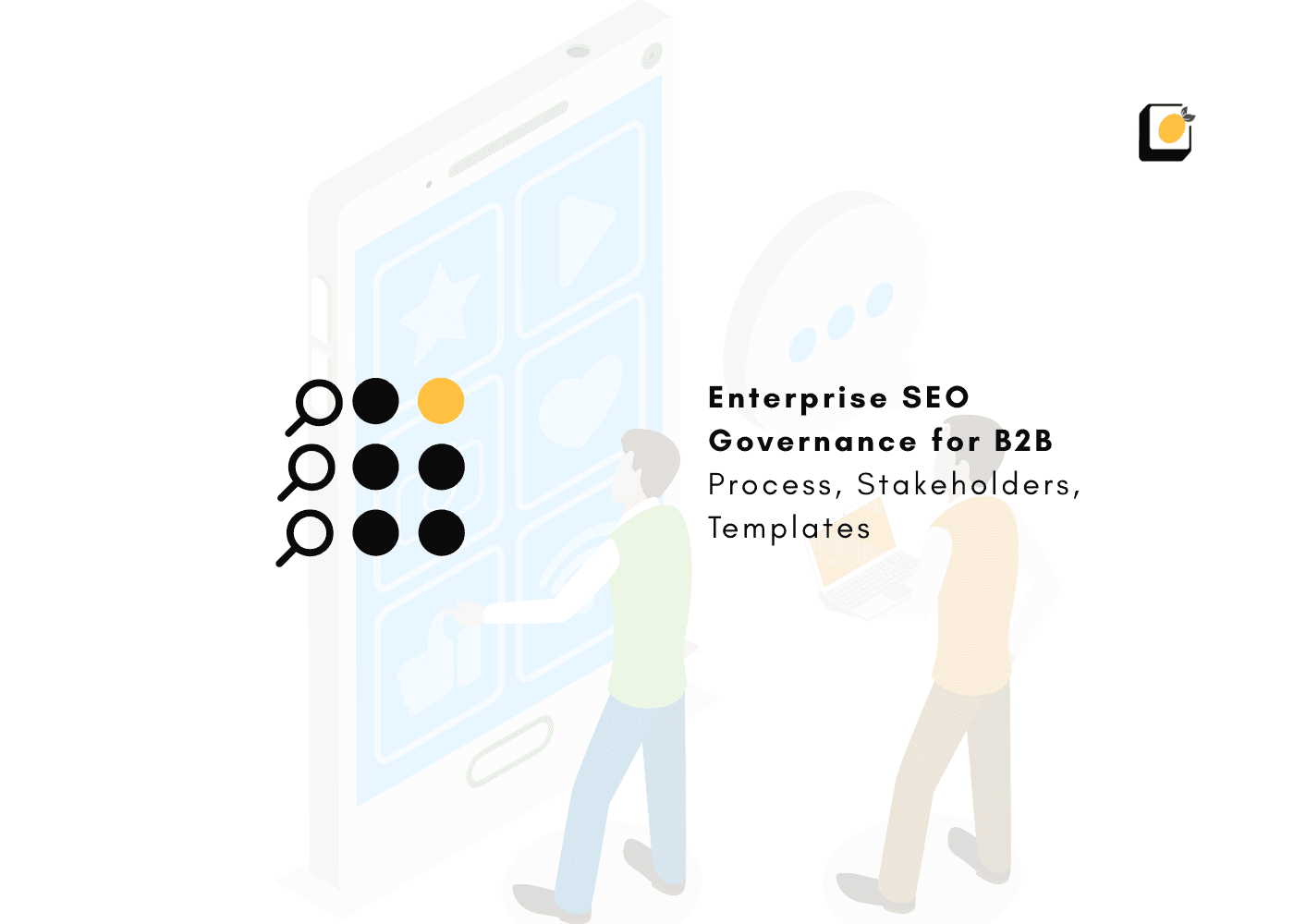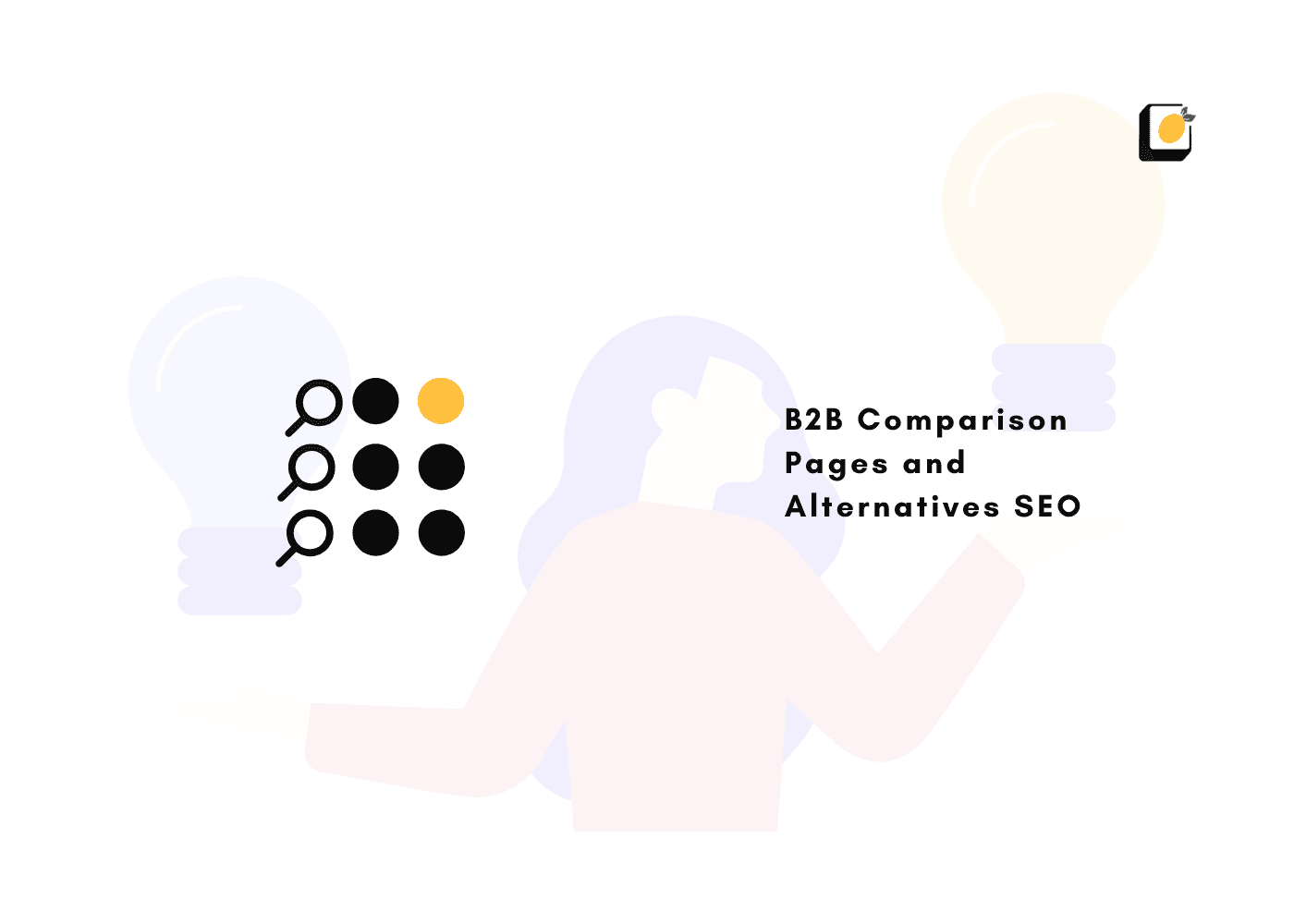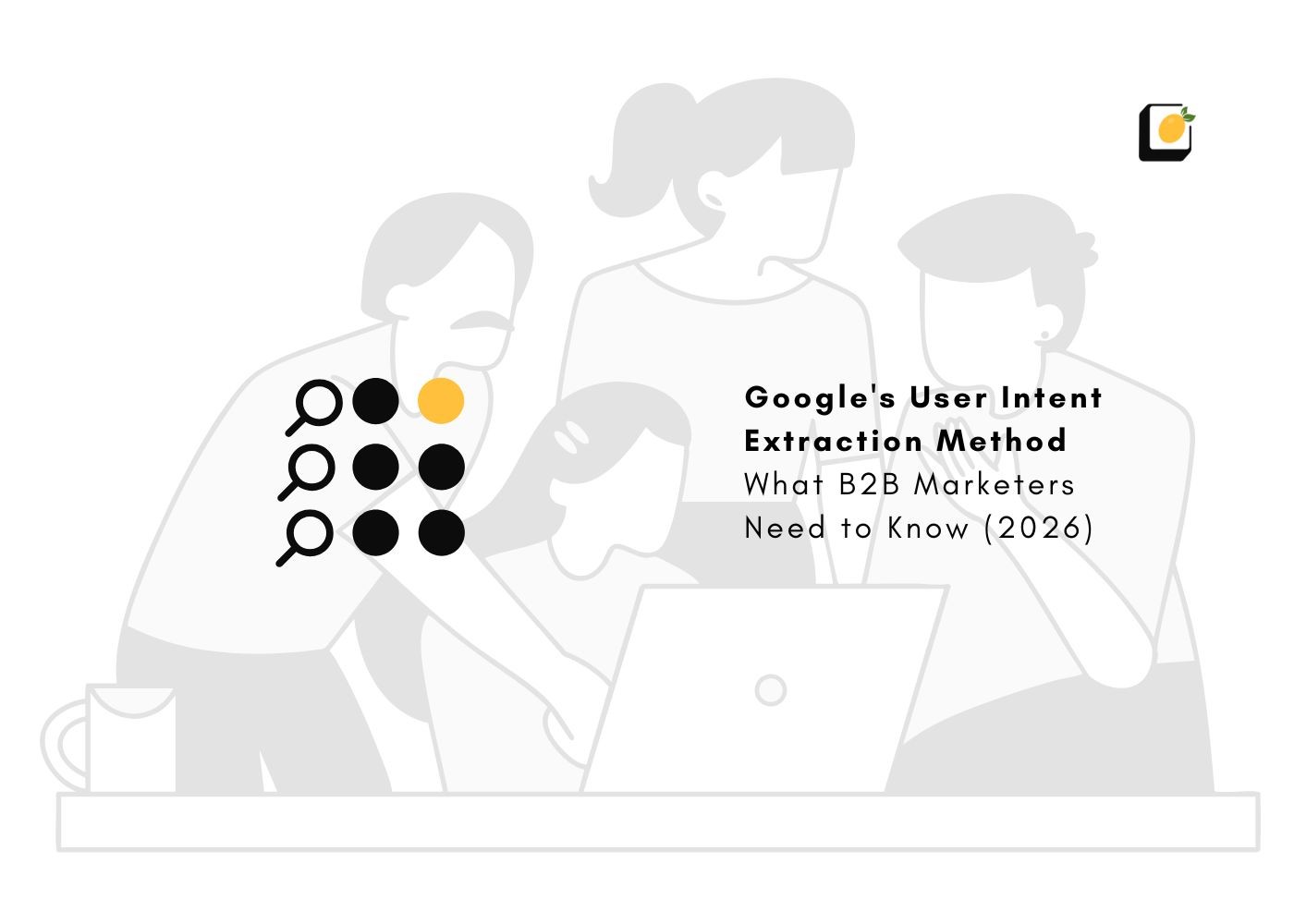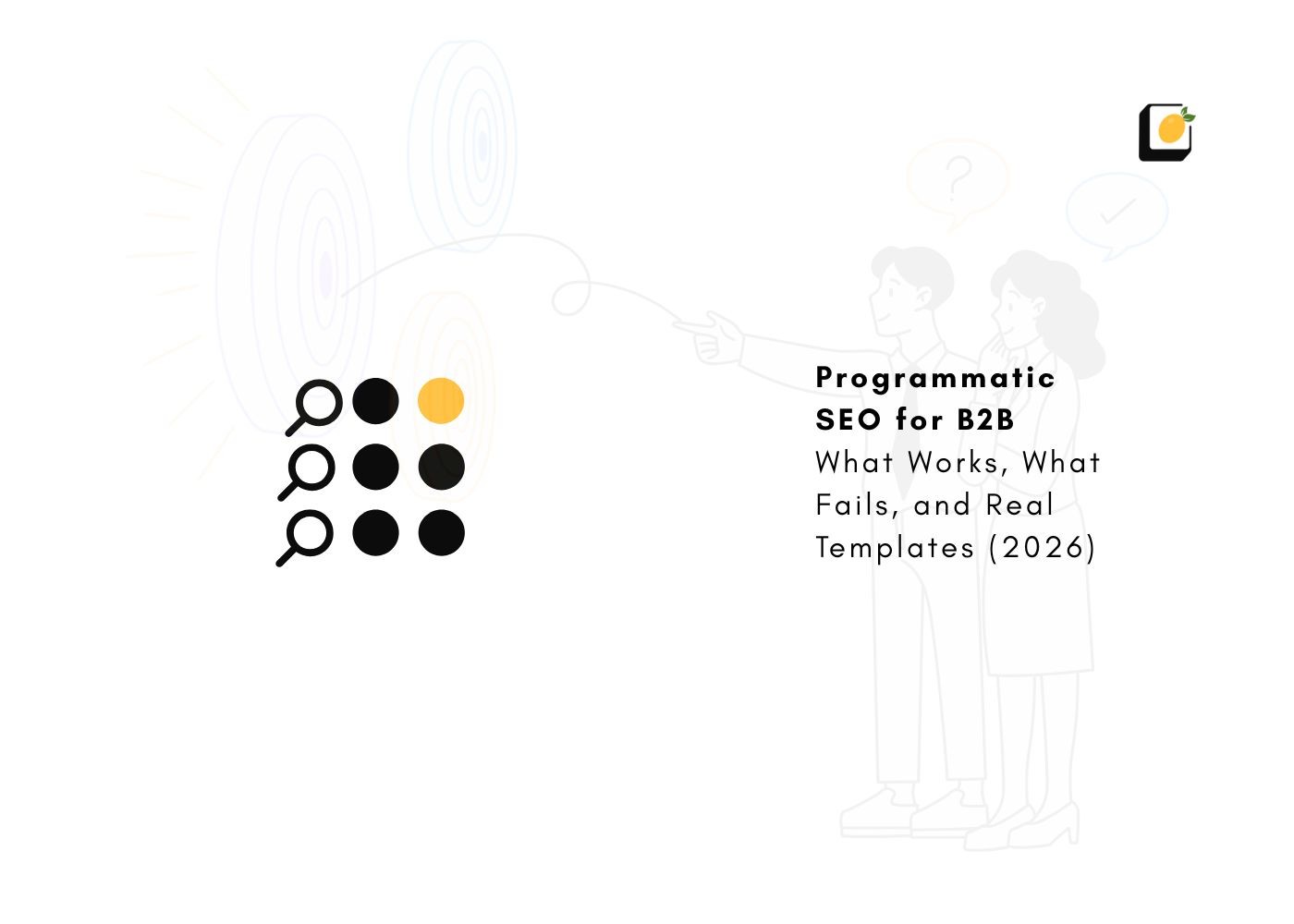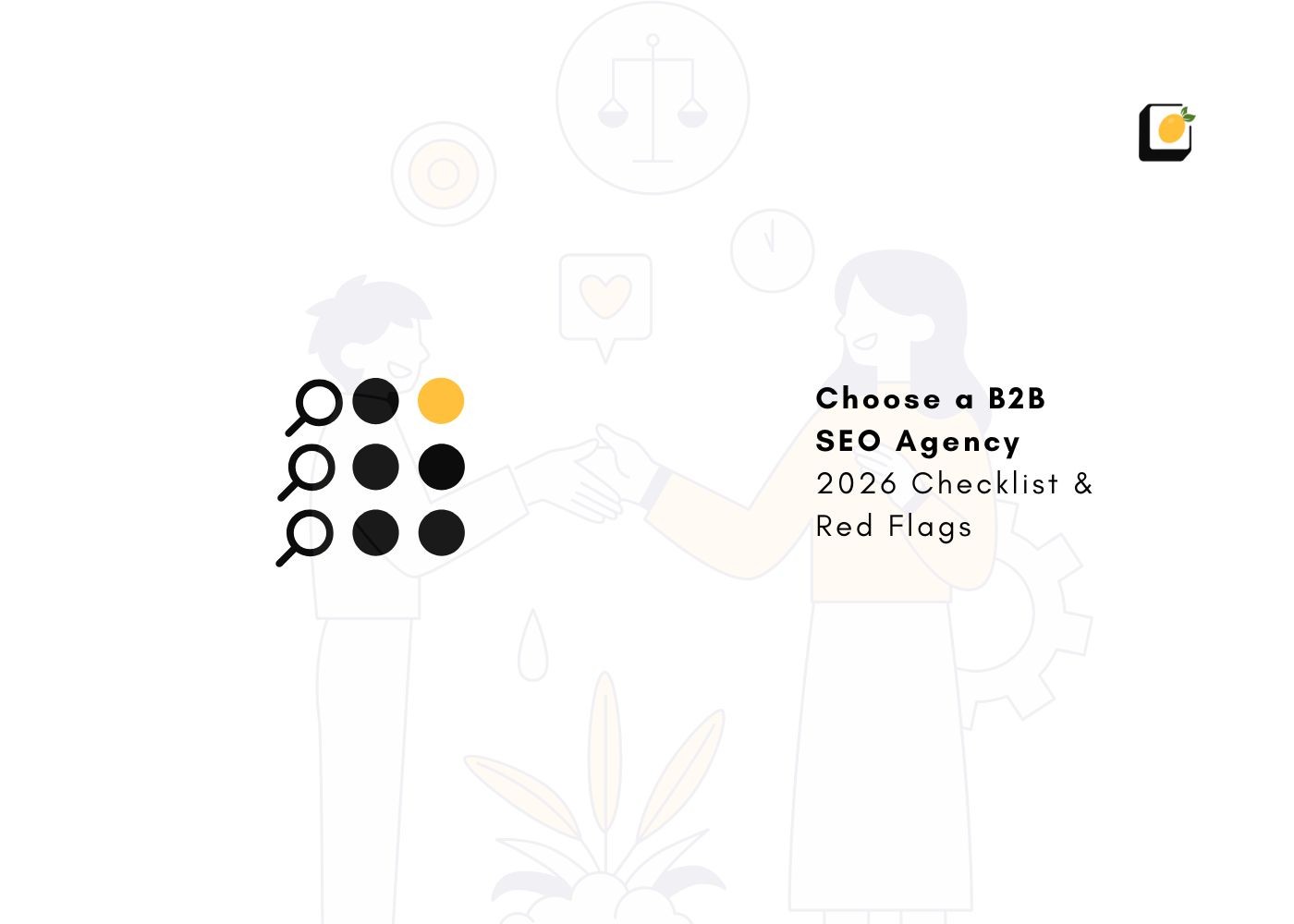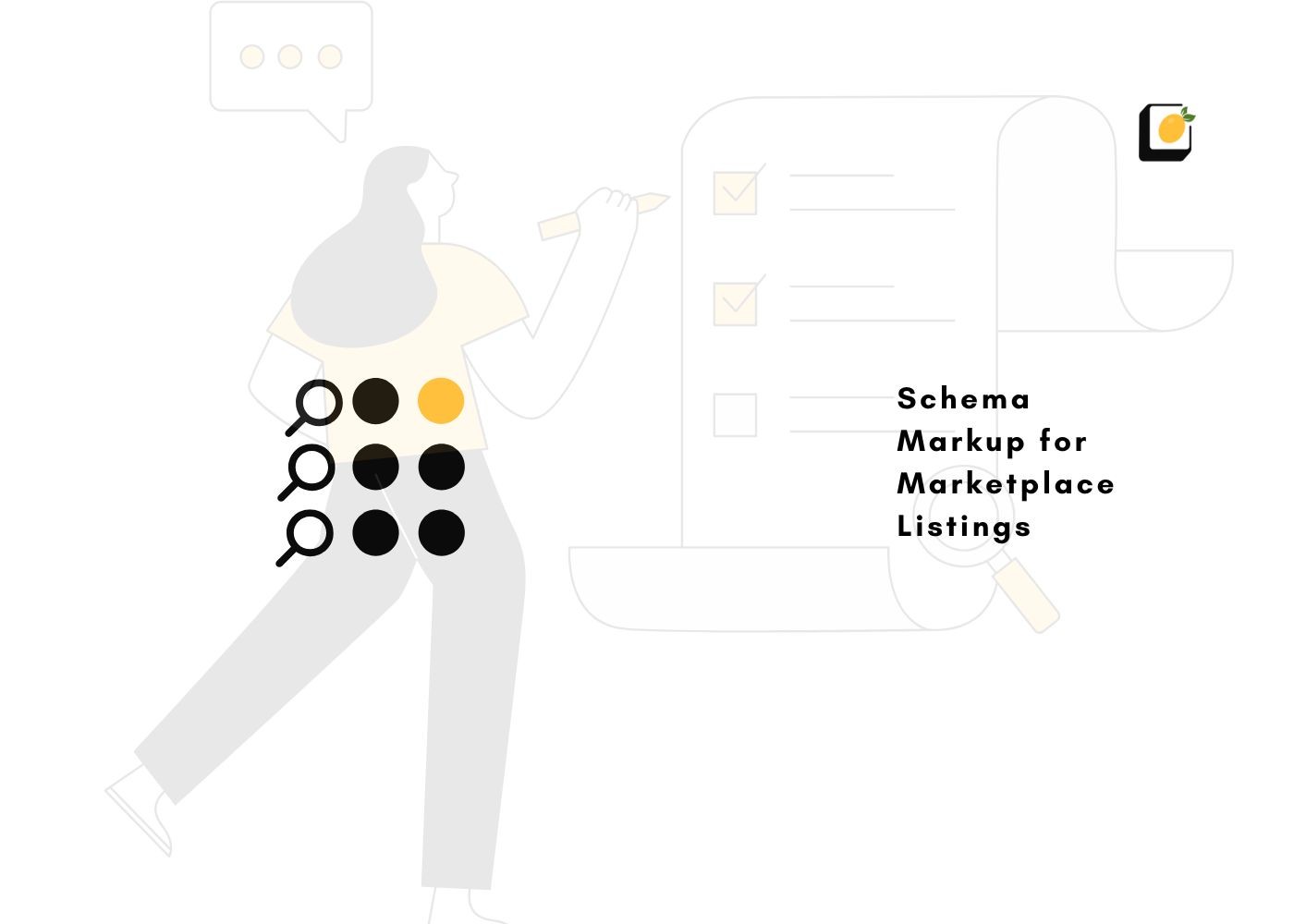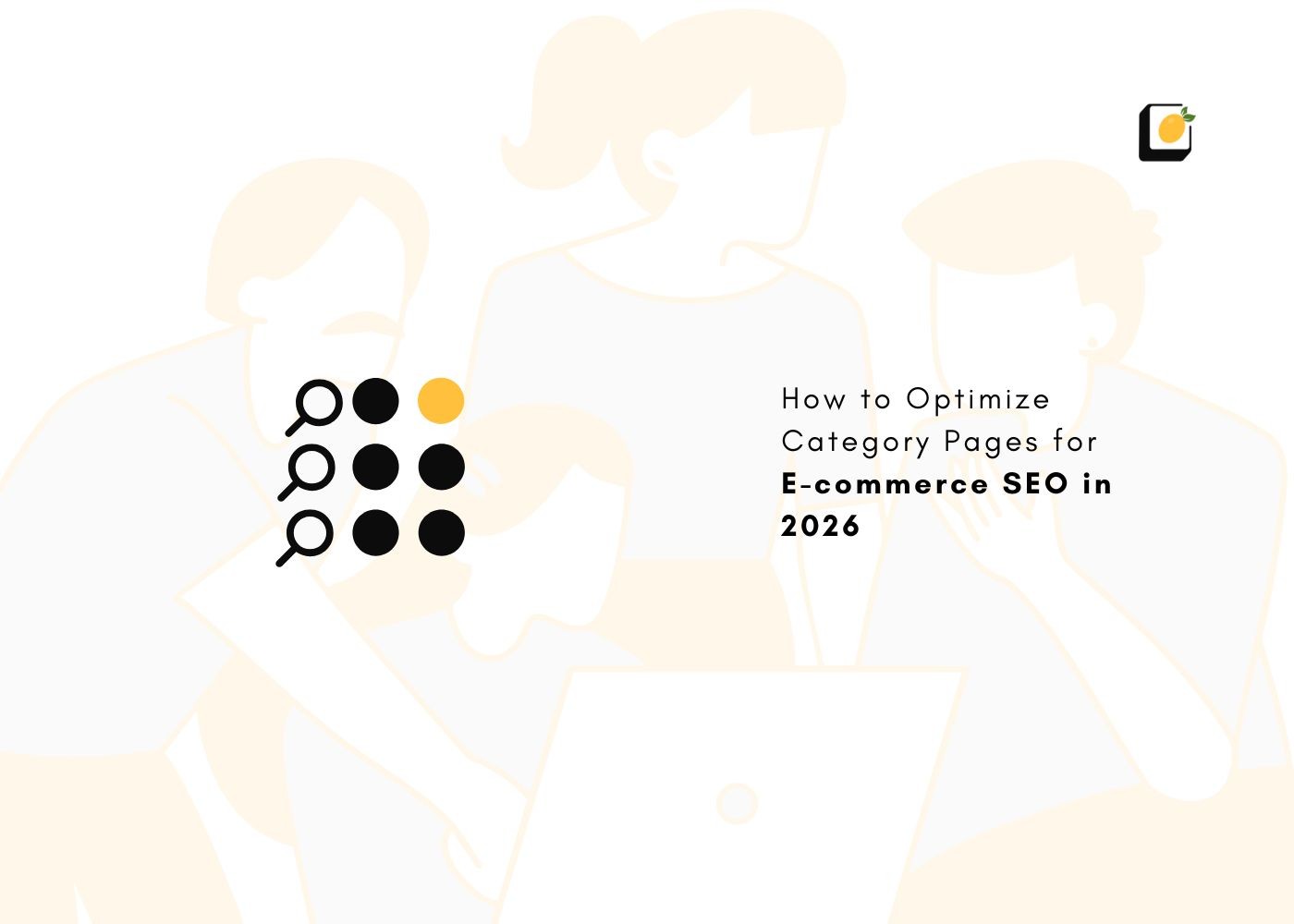AI SEO for B2C SaaS: Building a Future-Ready Search Engine Strategy
July 14, 2025
Join 500+ brands growing with Passionfruit!
The search engine landscape is changing faster than ever before. If you're running a B2C SaaS company, you've probably noticed your customers aren't just typing keywords into Google anymore. They're having full conversations with ChatGPT, asking Perplexity for detailed comparisons, and using voice assistants to find software solutions. Your marketing needs to evolve beyond traditional AI SEO tactics to meet customers where they actually search today. To fully grasp what is AI search and how it's reshaping SEO, you need to understand how conversational queries are replacing keyword-based searches.
B2C SaaS companies face unique challenges in this AI-driven world. Your potential customers ask complex questions like "What's the best project management tool for creative teams under 20 people with budget constraints?" Traditional keyword targeting can't capture these nuanced queries. The good news? Companies that adapt their search engine strategies now will dominate their markets while competitors struggle to understand why their old-school SEO isn't working anymore. Understanding why SEO is so expensive helps justify the investment in comprehensive AI-first strategies.
Digital Marketing Trends Shaping AI-First Search for SaaS Brands
Digital marketing has fundamentally shifted from keyword matching to understanding user intent. AI search platforms analyze context, past behavior, and conversational patterns to deliver personalized recommendations. Your B2C SaaS needs to appear not just in search results, but in AI-generated answers that directly address customer problems. The most insane SEO trends for 2025 show how rapidly the landscape is evolving.
The rise of conversational AI means your digital marketing approach must account for how people naturally ask questions. Instead of optimizing for "CRM software," you need content that answers "How can I track customer interactions without spending hours on data entry?" This shift requires rethinking your entire content approach from the ground up.
Why Search Engine Optimisation Remains Essential in an AI Era
Search engine optimisation isn't dead—it's evolving. While AI platforms like ChatGPT and Perplexity gain users daily, Google still processes billions of searches. The key is understanding that search engine optimisation now encompasses both traditional search engines and AI-powered platforms. Your optimization efforts need to work across multiple discovery channels. Mastering SEO in 2025 requires adapting to these multi-platform requirements.
Modern search engine optimisation for SaaS requires structured data, comprehensive content, and clear value propositions that AI systems can understand and recommend. When an AI analyzes your website to answer a user's question, it needs to quickly grasp what problems you solve, who you serve, and why you're the best choice. This means your optimization strategy must be more sophisticated than ever.
How Content Marketing Drives AI-First Search Success
Content marketing becomes your primary weapon in AI-first search. AI systems need extensive, high-quality content to understand your product's capabilities and recommend it appropriately. Your content marketing strategy should focus on creating comprehensive resources that answer every possible question about your software category. The best SEO content strategy with AI shows how to balance AI optimization with human readability.
Think beyond blog posts. Create comparison guides, implementation tutorials, ROI calculators, and case studies that demonstrate real-world results. AI platforms pull from this content to craft personalized recommendations, so the more thorough your content marketing library, the more often you'll appear in AI-generated responses.
Search Engine Marketing Tactics for B2C SaaS Growth
Search engine marketing in the AI era requires a multi-channel approach. You can't rely solely on Google Ads anymore. Your paid strategy needs to include traditional search ads, display networks, and emerging AI platform advertising opportunities. Each channel serves different stages of the customer journey. Understanding the difference between SEO and SEM helps allocate resources effectively.
Smart B2C SaaS companies are already experimenting with search engine marketing tactics specifically designed for AI platforms. This includes creating content partnerships, sponsoring AI-generated responses, and building relationships with AI platform providers. The landscape is still forming, giving early adopters significant advantages.
Advertising on Google for AI-Driven Visibility
Advertising on Google remains crucial, but the approach has changed. Google's AI-powered features like Performance Max campaigns use machine learning to optimize your ads across all Google properties. Your advertising on Google strategy should leverage these AI tools while maintaining control over messaging and targeting.
Success with advertising on Google now depends on feeding the algorithm quality signals. This means comprehensive conversion tracking, detailed audience data, and creative assets that clearly communicate your value proposition. The AI behind Google Ads rewards advertisers who provide clear, honest information about their products. How AI overviews are affecting click rates on Google provides insights into adapting your paid strategies.
Local SEO for SaaS: Reaching Target Audiences
You might think local SEO doesn't apply to SaaS, but that's outdated thinking. Many B2C SaaS companies serve specific geographic markets or have location-based features. Local SEO helps you capture searches like "accounting software for California businesses" or "fitness app popular in New York." How to leverage near me searches for local SEO shows practical implementation strategies.
Local SEO for SaaS also means optimizing for local business directories, review sites, and community platforms where your target customers gather. If your SaaS serves restaurants, appearing in restaurant industry publications and local business resources becomes part of your local SEO strategy.
Optimising Your SEO Website for AI Search Engines
Your SEO website needs to work for both human visitors and AI crawlers. This means clean code, fast loading times, and structured data that helps AI understand your content. When optimizing your SEO website, think about how an AI would interpret each page to answer user questions. Easy ways to get your website found on Google provides fundamental optimization tactics.
Google AI search and other platforms analyze your entire site to understand your expertise and trustworthiness. Your SEO website should demonstrate deep knowledge of your industry through comprehensive content, case studies, and thought leadership. This signals to AI systems that you're a credible source worth recommending.
Technical SEO Best Practices for AI-First Search
Technical SEO forms the foundation of AI search visibility. Your site needs proper schema markup, XML sitemaps, and clean URL structures. Technical SEO for AI also includes implementing FAQ schema, product schema, and organization schema that helps AI systems understand your business. The future of technical SEO trends explores emerging optimization requirements.
Modern technical SEO goes beyond traditional elements. You need to optimize for Core Web Vitals, mobile usability, and accessibility standards. AI systems favor websites that provide excellent user experiences, making technical SEO improvements directly impact your AI search visibility.
Using AI Marketing Tools for Better Search Engine Results
AI marketing tools can accelerate your optimization efforts significantly. Tools like Jasper, Surfer SEO, and MarketMuse use AI to analyze competitor content, identify gaps, and suggest improvements. These AI marketing tools help you create content that outperforms competitors in both traditional and AI search. Top 10 AI SEO tools to skyrocket your rankings reviews the best options available.
The best AI marketing tools for SaaS companies combine content optimization, competitive analysis, and performance tracking. They help you understand which topics to cover, how to structure content, and what questions to answer. This data-driven approach ensures your content meets both user needs and AI requirements.
Content Strategy for AI and SEO Integration
Your content strategy must balance human readability with AI optimization. This means creating content that thoroughly answers questions while remaining engaging and scannable. Your content strategy should map customer questions to content pieces, ensuring comprehensive coverage of your topic area. The generative engine optimization guide provides a framework for creating AI-optimized content.
AI and SEO work together when your content provides clear, authoritative answers to user queries. Your content strategy should include pillar pages covering broad topics, cluster content addressing specific questions, and regular updates incorporating new information. This approach helps both search engines and AI platforms understand your expertise.
Creating Content Marketing Strategies for SaaS
Effective content marketing strategies for B2C SaaS focus on the customer journey. Map out every question prospects might ask from initial awareness through purchase decision. Your content marketing strategies should address each stage with appropriate content types and calls-to-action. How to write an SEO optimized article with Claude 4 demonstrates practical content creation techniques.
Content marketing strategies that succeed in AI search go deep rather than broad. Instead of surface-level blog posts, create comprehensive guides that become the definitive resource on specific topics. AI systems favor in-depth content that thoroughly addresses user needs over shallow content targeting keywords.
Programmatic Advertising in an AI-Driven Search World
Programmatic advertising uses AI to automatically buy and optimize ad placements across thousands of websites. For B2C SaaS companies, programmatic advertising offers unprecedented reach and targeting capabilities. You can reach potential customers wherever they browse online, not just on search engines.
Modern programmatic advertising platforms use machine learning to identify your ideal customers based on behavior patterns, interests, and intent signals. This means your ads appear to users most likely to need your SaaS solution, improving ROI while reducing wasted spend on irrelevant audiences.
Voice and Conversational Search in B2C SaaS
Search voice queries tend to be longer and more conversational than typed searches. People ask complete questions like "What's the best email marketing software for small businesses that integrates with Shopify?" Your content needs to match these natural language patterns to capture search voice traffic. The rise of voice search optimizing your content for conversational queries provides detailed optimization strategies.
ChatGPT search represents the future of how people find information and make purchase decisions. When someone asks ChatGPT about software recommendations, your product needs to appear in that conversation. This requires comprehensive content that positions your SaaS as the solution to specific problems users describe. Understanding how to search with AI helps anticipate user behavior changes.
AI for Marketing: Meeting Users Where They Search
AI for marketing isn't just about using AI tools—it's about understanding how AI changes user behavior. People increasingly trust AI recommendations, making it crucial that your marketing strategy positions your SaaS favorably in AI responses. AI for marketing means optimizing for AI discovery platforms. Unlocking AI for SEO explores optimization opportunities.
Your AI for marketing approach should include creating content specifically designed to be quoted by AI systems. This means clear, factual statements about your product's capabilities, specific use cases, and quantifiable benefits. AI systems prefer concrete information over vague marketing claims.
Digital Marketing AI: Connecting with Modern B2C Buyers
Digital marketing AI tools help you understand and reach modern buyers more effectively. These tools analyze customer behavior, predict purchase intent, and personalize messaging at scale. Digital marketing AI transforms how B2C SaaS companies identify and convert potential customers. Digital marketing with AI craziest SEO trends showcases emerging strategies.
Marketing AI capabilities continue expanding rapidly. From chatbots that qualify leads to predictive analytics identifying churn risks, marketing AI helps SaaS companies operate more efficiently. The key is choosing tools that integrate with your existing tech stack and provide actionable insights rather than just data.
Choosing the Right SEO Company for AI-First Search
Finding the right SEO company for your B2C SaaS requires careful evaluation. Many SEO company options still focus on outdated tactics that don't work in AI-first search. You need partners who understand both traditional SEO and emerging AI optimization strategies. Top AI SEO companies reviews leading agencies specializing in AI optimization.
The best SEO company for SaaS SEO will demonstrate deep understanding of your industry, proven results with similar companies, and clear strategies for AI search optimization. They should explain how they'll position your product in both traditional search results and AI-generated responses. The top 5 SEO mistakes SaaS companies make helps you evaluate potential partners.
What to Look for in SEO Services for SaaS
Quality SEO services for B2C SaaS go beyond basic optimization. You need SEO services that include competitive analysis, content strategy, technical optimization, and AI search preparation. The right SEO services partner becomes an extension of your marketing team. What is SEO management the ultimate guide explains comprehensive service offerings.
When evaluating SEO services, ask specifically about their experience with SaaS companies and AI search optimization. They should provide case studies showing how they've helped similar companies improve visibility across multiple search platforms. Avoid SEO services that promise quick fixes or guaranteed rankings.
Building a Long-Term Marketing Strategy for AI Search
Successful marketing strategies for AI-first search require long-term thinking. You can't optimize once and forget it. Your marketing strategies need continuous refinement based on algorithm changes, competitive moves, and user behavior shifts. The 4 pillars of SEO provides a framework for sustainable optimization.
Marketing strategies that win in AI search focus on building authority and trust over time. This means consistent content creation, regular updates to existing content, and ongoing optimization based on performance data. Your marketing strategies should be flexible enough to adapt as AI search continues evolving.
Measuring Success: SEO Marketing and B2B Marketing Insights
SEO marketing success in the AI era requires new metrics. Traditional rankings matter less when AI platforms pull information from multiple sources. Your SEO marketing measurement should focus on visibility across platforms, content citations in AI responses, and actual business outcomes. Organic traffic vs organic conversions helps identify meaningful metrics.
While focused on B2C, many B2B marketing principles apply to SaaS companies. Both require demonstrating expertise, building trust, and providing value before asking for a sale. Your measurement approach should track the entire customer journey from discovery through conversion.
AI for SEO: Tracking and Improving Results
AI for SEO includes using AI-powered analytics tools to understand performance and identify opportunities. These tools analyze ranking factors, content gaps, and competitive landscapes more comprehensively than traditional SEO tools. AI for SEO helps you make data-driven optimization decisions. Can AI content really boost your SEO rankings examines effectiveness metrics.
Regular testing and iteration are crucial when using AI for SEO. What works today might not work tomorrow as AI algorithms evolve. Set up systematic testing processes to continuously improve your content and optimization strategies based on real performance data.
Marketing AI to Stay Ahead of Search Changes
Marketing AI tools help you anticipate and adapt to search algorithm changes. By analyzing patterns across millions of searches, marketing AI can identify emerging trends before they become mainstream. This gives your B2C SaaS first-mover advantages in new search opportunities. Best ways to organically scale brands with AI search showcases growth strategies.
The key to leveraging marketing AI effectively is choosing tools that provide actionable insights rather than just data. Look for platforms that offer specific recommendations, automate routine tasks, and integrate with your existing marketing stack. Services like Passionfruit specialize in helping SaaS companies navigate this complex landscape with comprehensive SEO and AI optimization strategies that go beyond what typical SEO agencies offer.
FAQ
How much should B2C SaaS companies budget for AI-first SEO? Most B2C SaaS companies should allocate 15-25% of their marketing budget to SEO and content efforts. This includes tools, content creation, and optimization work. The investment pays off through reduced customer acquisition costs over time.
Can small SaaS startups compete with established players in AI search? Yes, AI search actually levels the playing field. By creating highly specific, valuable content for niche audiences, startups can outrank larger competitors for targeted queries. Focus on depth over breadth.
How long before I see results from AI SEO efforts? Initial improvements typically appear within 3-4 months, with significant results developing over 6-12 months. AI optimization is a long-term strategy that compounds over time.
Should I optimize for ChatGPT, Google, or both? Optimize for both plus other emerging platforms. While Google still dominates, ChatGPT and similar platforms are growing rapidly. A comprehensive strategy covers all major discovery channels.
What's the most important factor for SaaS AI search success? Creating genuinely helpful content that thoroughly answers user questions. AI systems prioritize comprehensive, accurate information over keyword-optimized fluff.
Ready to transform your B2C SaaS marketing for the AI-first search era? Passionfruit combines traditional SEO expertise with cutting-edge AI optimization strategies to help SaaS companies dominate their markets. Our comprehensive approach ensures your product appears wherever potential customers search, from Google to ChatGPT and beyond.
Key Takeaways
AI Search is Fundamentally Different
Customers now ask full conversational questions instead of typing keywords
AI platforms analyze context, intent, and behavior patterns to deliver personalized recommendations
Traditional keyword-focused SEO alone won't capture these complex, nuanced queries
B2C SaaS Companies Need Multi-Platform Strategies
Google still dominates but ChatGPT, Perplexity, and voice assistants are growing rapidly
Each platform serves different stages of the customer journey
Early adopters in AI search optimization gain significant competitive advantages
Content Depth Beats Content Volume
AI systems favor comprehensive, authoritative content over keyword-stuffed pages
Create detailed guides that answer every possible customer question
Focus on solving specific problems rather than targeting isolated keywords
Technical Foundation Remains Critical
AI systems need structured data to understand your business
Site speed, mobile optimization, and user experience directly impact AI recommendations
Schema markup for SaaS features, pricing, and capabilities is essential
Conversational Optimization is the Future
Optimize for questions like "What's the best project management tool for creative teams under 20 people?"
Voice search queries are longer and more specific than typed searches
Content must match natural language patterns
Measurement Must Focus on Revenue Impact
Track conversions, trials, and customer lifetime value—not just traffic
AI search often delivers higher-quality, pre-qualified leads
Traditional ranking reports become less relevant as AI provides direct answers
Small SaaS Companies Can Outcompete Giants
AI search levels the playing field through niche expertise
Highly specific content for targeted audiences beats generic corporate content
Deep customer understanding provides competitive advantages
Actionable Checklist
Immediate Actions
Audit your current visibility across Google, ChatGPT, and Perplexity
Search for your product using conversational queries customers would ask
Document gaps where your product doesn't appear in AI responses
Complete all fields in your Google Business Profile (if applicable)
Review and update meta titles/descriptions for conversational intent
Foundation Building
Implement comprehensive schema markup for:
Organization/Company details
Software/Product features
Pricing structure
FAQ sections
Customer reviews
Create comparison pages answering "Your Product vs. Competitor" queries
Build dedicated pages for each major use case
Optimize site speed to under 3 seconds load time
Ensure mobile responsiveness across all pages
Content Development
Map customer journey questions from awareness to purchase
Create pillar content for each major product category
Develop 10+ detailed guides answering specific customer problems
Build implementation tutorials with step-by-step instructions
Create ROI calculators or interactive tools
Publish case studies with quantifiable results
Write content for voice search queries (longer, conversational)
AI-Specific Optimization (Ongoing)
Structure content with clear headers that match user questions
Include specific, factual statements about capabilities
Add concrete examples and use cases throughout content
Create content designed to be quoted by AI systems
Update product information across all platforms for consistency
Monitor which content gets cited in AI responses
Technical Implementation
Set up comprehensive conversion tracking for:
Free trial signups
Demo requests
Contact form submissions
Phone calls
Chat interactions
Implement Core Web Vitals optimization
Add breadcrumb navigation for better content structure
Create XML sitemaps for all content types
Set up 301 redirects for any moved content
Marketing Integration
Align paid search campaigns with AI optimization efforts
Test Performance Max campaigns on Google Ads
Experiment with programmatic advertising for broader reach
Create retargeting campaigns for AI search visitors
Build email nurture sequences for different user intents
Performance Monitoring
Set up dashboards tracking:
Trial-to-customer conversion rates
Customer acquisition cost by channel
Lifetime value by traffic source
Content performance in driving conversions
Schedule monthly reviews of AI search visibility
Track competitor movements in AI platforms
Monitor algorithm updates and adjust strategies
Analyze which queries drive the highest-value customers
Long-term Strategy
Develop content partnerships with complementary SaaS tools
Create co-marketing opportunities for cross-promotion
Build relationships with AI platform providers
Test sponsored placements in AI responses (as available)
Expand to new AI platforms as they emerge
Create video content optimized for AI recommendation
Build community around your product for user-generated content
Team and Resources
Assign clear ownership for AI SEO initiatives
Train team on conversational content creation
Invest in AI-powered SEO tools for ongoing optimization
Consider hiring AI SEO specialists or agencies
Schedule regular team reviews of performance data
Create documentation for AI optimization processes


